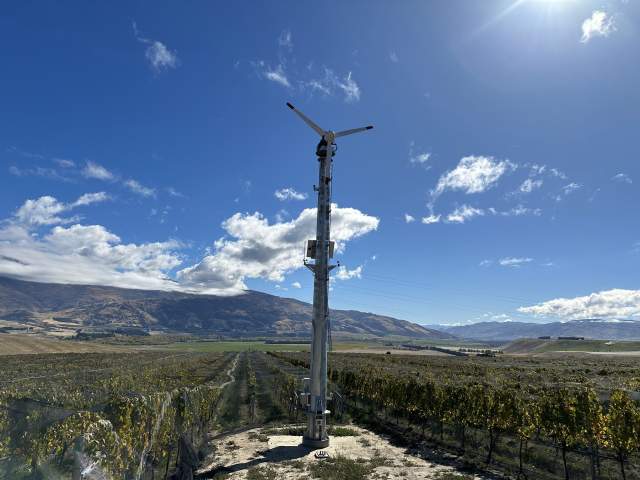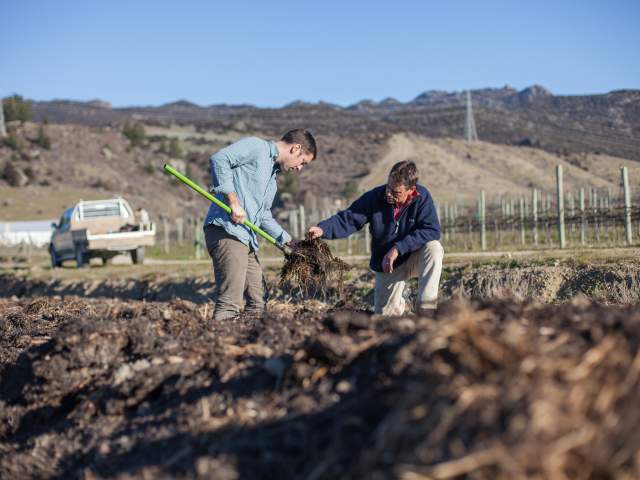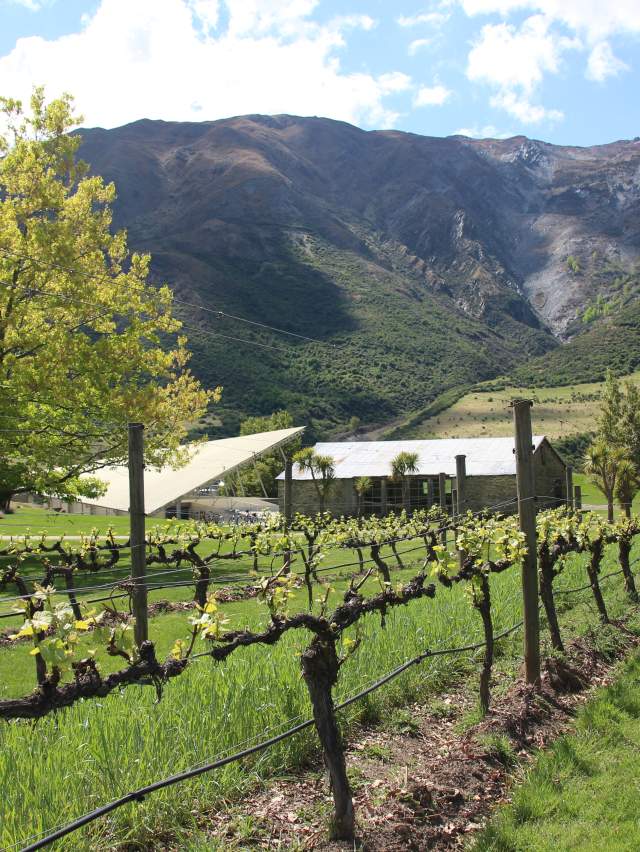Gibbston - home to some of Otago wine region’s oldest vineyards with an ongoing story of award-winning pinot noir. One of those is multi-award-winning Peregrine Wines.
Driving east along State Highway 6 to Gibbston, known as the ‘Valley of the Vines', you’re surrounded by rugged schist mountains running along the rocky Kawarau River gorge. You spot a long, flat yet slightly contorted roof structure in the distance as you gaze across rows of vines. That is the landmark home of Peregrine Wines which houses its winery, cellar door and multi-use venue.
The curved canopy was designed to resemble the kinetic rotation of a falcon’s wing in flight. A symbol of Peregrine’s ongoing dedication to protecting New Zealand’s native bird species. One of which is the Kārearea – New Zealand’s only falcon.
Peregrine Wines has proudly worked with Wingspan Birds of Prey Trust, the Department of Conservation (DOC), and the Fiordland Conservation Trust. With ongoing work including raising kārearea chicks at their winery in partnership with Wingspan Trust, and working with DOC to help achieve their goal of making Resolution Island in remote Dusky Sound the largest predator free island in New Zealand.
Along with conservation efforts to protect New Zealand’s native birds, Peregrine’s passion for the land extends to organic farming practices, and more recently, the introduction of all-electric frost fans at Peregrine Estate in Bendigo – the first vineyard operation in the country to introduce this new technology.

As part of Peregrine’s sustainability journey, electric frost fans were a natural next step, not only reducing their carbon footprint when the fans are in use but offering a quieter and more reliable frost protection option. The electric motors require less maintenance than their diesel counterparts they have lower operating costs, and allow additional vines to be planted where tanker access may previously have been required for refuelling purposes.
Peregrine Wines Owner and CEO, Fraser McLachlan, says installing New Zealand’s first electric frost fans has been a significant step towards achieving Peregrine’s sustainability goals.
“We’re a family business committed to our operation having a minimal impact on the environment, and ensuring we leave our piece of land in better shape than before we touched it.
“Frost protection is such an important tool in the wine industry but knowing the high carbon footprint of diesel-powered mechanisms, it was a natural next step to electrify our new frost fans,” Fraser said.

The innovative growers have further enhanced their irrigation practices with the introduction of sub-surface irrigation, with water being transported directly to the roots of vines under the surface of the soil. From a sustainability perspective this results in a potential 30 percent reduction in water use, reduces under-vine weed growth and associated tractor passes, and encourages the benefits of a healthy mid-row cover crop and vibrant soil structure.
These developments form part of Peregrine’s sustainability journey and will continue to be forefront in their production, design and product development process going forward.
As a family-owned winery, Peregrine is committed to producing quality wines that are truly representative of the Central Otago wine region, all while enhancing the land from which they come.

